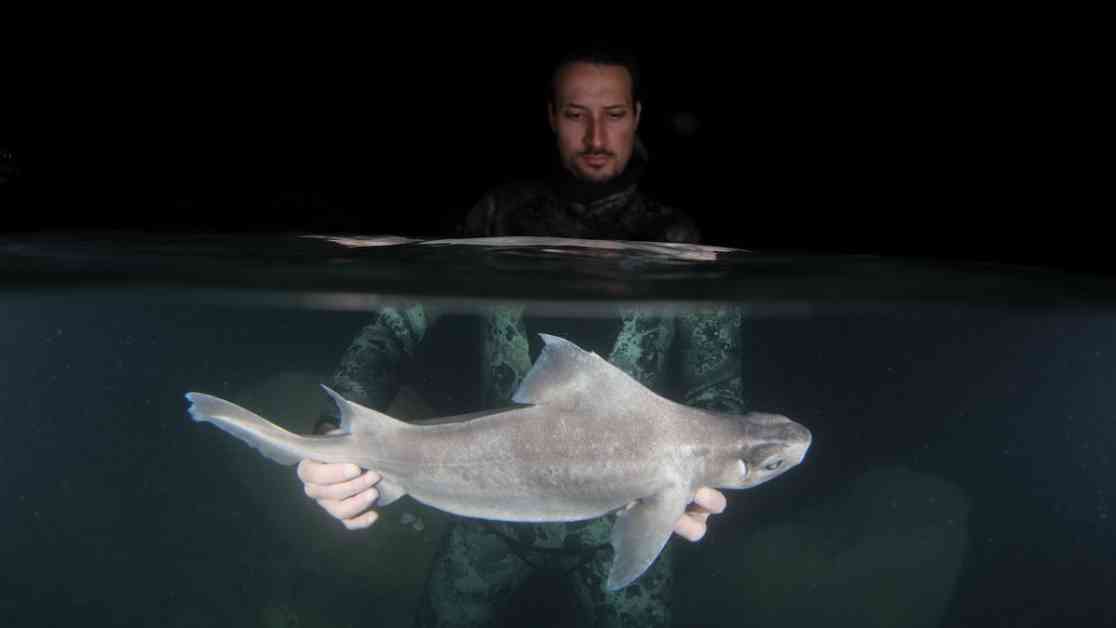A rare discovery has been made off the coast of Albania – a ghostly white deep-sea shark. The angular roughshark was caught by a commercial trawler near Sazan Island at a depth of 656 feet. What makes this shark unique is that it has leucism, a genetic disorder that affects melanin production, causing a reduction in pigmentation. Unlike albinism, where animals completely lack melanin, leucistic sharks have normal iris pigmentation even if they appear completely white.
Lead author Andrej Gaji?, director of Sharklab ADRIA in Albania, explained that this shark was leucistic rather than albino because it had normal retinal pigmentation in its eyes. The discovery was published in the Journal of Fish Biology, marking the first description of leucism in angular rough sharks and the first record of a pigment disorder in the Oxynotidae family.
While the shark’s coloration may make it more visible to predators and prey, the researchers found that it was otherwise healthy and unaffected by its unusual appearance. Only 15 cases of pigment disorders have been documented among deep-sea shark species, making this discovery exceptionally rare.
The scientists are interested in exploring how human threats, such as pollution and fishing, may affect sharks’ susceptibility to disease and other disorders. The region where the shark was found, Vlorë, is considered an important hotspot for sharks and rays, including other critically endangered species like little gulper sharks and spiny butterfly rays.
This discovery highlights the importance of studying and protecting marine species, especially those that are rare or endangered. Understanding the factors that contribute to pigment disorders in sharks can provide valuable insights into their health and conservation. Further research is needed to determine the causes of leucism in sharks and how it may impact their survival in the wild.




